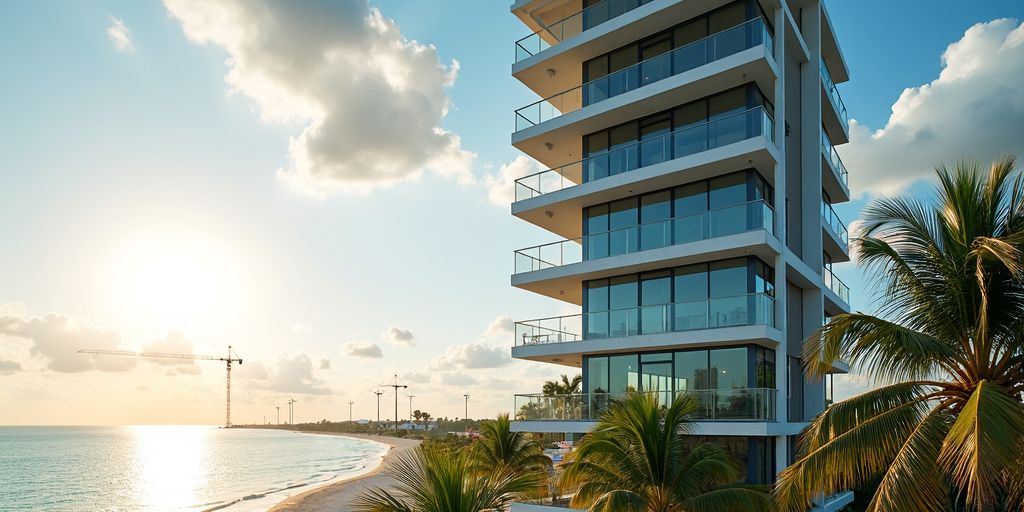Florida’s real estate landscape is undergoing significant shifts due to new condo laws, impacting owners, buyers, and the market. These legislative changes, effective July 1, 2025, aim to enhance transparency and safety following past structural concerns, while also addressing affordability and market dynamics. The new regulations introduce stricter inspection requirements, revised reserve funding rules, and increased disclosure obligations for condo associations.
Florida’s Condo Market: A Tale of Two Extremes
Florida’s condo market presents a paradox: while luxury condo sales are thriving, the broader market faces challenges. High mortgage rates, stringent financing, and rising costs are sidelining mid-tier buyers, leading to a 25% drop in Miami-Dade condo sales and a 24% drop in Broward compared to last year. Despite this, median condo prices in Miami-Dade have remained stable at $425,000, while Broward saw a slight decrease to $275,000.
- Luxury condo sales (over $1 million) have surged since May 2019.
- Overall condo sales are down significantly in Miami-Dade and Broward counties.
- Condo inventory is increasing, but new listings are declining, suggesting owner hesitation to sell.
New Laws: Transparency and Structural Integrity
Governor Ron DeSantis signed HB 913 and HB 393 into law, introducing several key changes to Florida’s condo regulations. These laws are a direct response to concerns about structural integrity and financial transparency within condo associations.
- Extended Review Period: Prospective condo buyers now have seven days (excluding holidays and weekends) to review association documents, up from three days.
- Milestone Inspections and SIRS: The deadline for Structural Integrity Reserve Studies (SIRS) is extended to December 31, 2025. These requirements now apply to buildings with three or more habitable stories.
- Reserve Funding Flexibility: Condo associations can temporarily pause reserve funding for two years after a milestone inspection and can use lines of credit or Certificate of Deposit accounts for reserves, with owner approval.
- Increased Transparency: Associations must post approved board meeting minutes for the preceding 12 months on their websites, providing buyers with insight into potential special assessments.
Impact on Owners and the Market
The new laws have sparked mixed reactions. While proponents, like Florida Realtors, hail them as a victory for property owners, critics argue they don’t go far enough to address broader housing affordability issues. The changes are expected to influence buyer sentiment, though interest rates and insurance costs remain primary concerns.
Some innovative solutions are emerging in response to the market shifts. For instance, Coral Reef General Contracting in Fort Pierce is offering to accept condo units as down payments for new luxury homes, aiming to alleviate the burden on condo owners struggling with rising fees and structural issues.
- Down Payment Assistance: $50 million allocated for essential workers.
- Property Fortification: $280 million for the My Safe Florida Home Program to help homeowners fortify against storms.
- Business Rent Tax Repeal: A significant win for commercial property owners, potentially saving businesses over $900 million.
These legislative and market adjustments underscore a dynamic period for Florida’s real estate, as stakeholders navigate new regulations and evolving economic conditions.
Sources
- Condo sales struggle in Miami but luxury market thrives, Miami Herald.
- Condo owners can trade unit for home down payment, Treasure Coast News.
- New Florida laws will impact property owners: Here’s what to know, FOX 13 Tampa Bay.
- New Florida condo laws aim to add transparency for buyers, HousingWire.
- Condo Law Changes Prompt New Forms, Webinar, | Florida Realtors.


